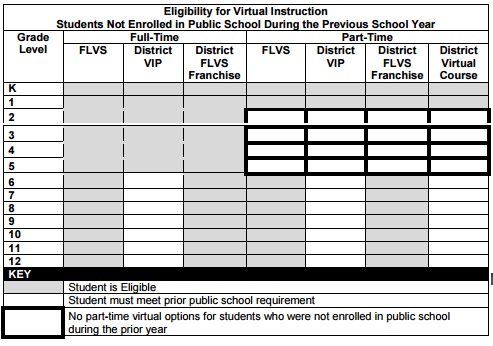Tucked inside Gov. Rick Scott’s budget proposal is a plan to eliminate the last remaining restrictions on students’ eligibility for online courses.
Florida has long been a leader in K-12 virtual schooling, but as it’s expanded over the years, eligibility gaps remain.
Under existing laws, students in second through fifth grades can’t enroll in virtual courses part-time. Children in middle and high school can only take certain part-time courses if they were enrolled in public schools the previous year.
Those restrictions mean Florida Virtual School, its district-run franchises and their private competitors have to turn some students away. The statewide public virtual school has been expanding its elementary school offerings after a state law authorized them in 2011, but students typically can’t enroll in those courses unless they sign up for virtual school full-time or they attended a public school the previous year.

Lawmakers have advanced bills to make virtual courses more widely available in previous years, but they haven’t crossed the finish line.
The Republican-controlled Legislature seldom adopts the governor’s proposals whole-cloth.
For example, Scott once again has proposed restricting facilities funding for new charter schools to those that serve areas where existing public schools struggle academically. The governor comes from a blue-collar family that spent several years in public housing, and has argued school choice programs should prioritize scarce resources for the disadvantaged. This proposal, however, has never made it through the Legislature.
There are several other interesting education proposals in nearly 200 pages of proposed budget implementing legislation, which Scott released on Tuesday — including an elimination of exam and certification fees for teachers.



When will the voting session be over for all these proposals?